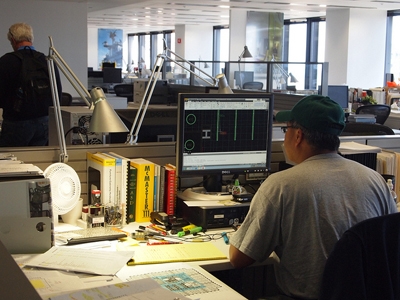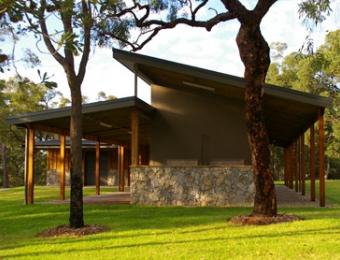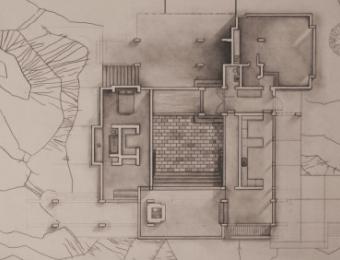
Great design’s arguably the most important part of building a fantastic house or doing spectacular renovations – and for that reason getting the right person to design your home’s a big deal.
Ultimately, choosing an architect will come down to researching:
- what sort of work they do,
- where they typically work,
- how they charge and
- how well you’ll be able to deal with them.
Do all architects design houses?
No - not all Australian architects work on residential projects. In fact, many of them don’t. If you’re choosing an architect you’ll have to find one that does residential projects. Most building designers, on the other hand, are likely to do residential design work.
It might sound obvious, but when you’re choosing an architect or a building designer make sure you shop around for someone whose existing work you like. Style and taste are extremely important considerations, but you may also want to look for things like general attention to detail, the use of certain materials or technologies (if you have any special preferences) and the size of other projects they’ve worked on.
Some architects and building designers will cope better working with the specific limitations and scope of your project than others might.
How do architects calculate their fees?
This is a big one. There’s likely to be a significant difference from architect to architect in terms of the way they charge for their services, and their cost will depend largely on experience, reputation and demand. Architects will also charge significantly different amounts for their services depending on how engaged you want them to be with your building project.
Architects may offer different levels of involvement – their services may include anything from basic design and arranging permits, through to costings for builders and materials, landscape design, additional technical documentation, individual fixture and fitting specifications and contract administration / project management services. Obviously the more the architect does, the more you’ll pay.
Generally speaking, there are three ways that architects will charge:
- Percentage fees – architects are often employed on the basis that they’ll get paid a percentage of the overall cost of the project or allocated budget. The exact percentage charged will normally vary depending on the overall cost, with higher percentages being charged for smaller projects.
- Fixed fee projects – If you’re very clear about what you want from the briefing stage (or very clear about how much you’re able to afford), then the architect may be able to tailor a fixed fee for your project. While it's likely to have a little 'fat' added on to the cost, this method may help to protect you from costs spiraling out of control if anything unexpected happens.
- Hourly rates – While working without a fixed budget might sound daunting, in some cases it’s better for both you and the architect. Provided that careful records are kept, it’s a good way to ensure that you’re only paying for the amount of work that’s been done. It also means the architect isn’t worried about committing effort over and above a given amount.
As with all contracted building professionals, fees for architectural work can easily blow out if you’re looking to have variations made outside of your Client and Architect Agreement (the contract you'll sign with the architect). It’s very important that you see eye-to-eye with the architect and that you’re both very clear about what’s required before you sign.
Hiring a ‘local’ architect
There’s no hard and fast rule to say that you absolutely have to get an architect who does most of their work near where you’re planning to build. In fact, if you’re very particular about what (or who) you want, there’s no harm at all enquiring further afield.
Obviously there’s some advantage to hiring an architect who’s familiar with state and local council planning issues though - and who’s experienced in designing for the sorts of environmental conditions on your site (e.g. coastal buildings, buildings in the tropics, buildings on steep slopes etc.)
How to find a qualified architect
Architects are very well organised in Australia, and finding a qualified architect isn’t hard. For anyone to operate as an architect in Australia they’re legally required to be registered with state architecture boards, so most architects you’ll find will be fully qualified and properly insured.
While the websites of the state architects’ boards are very useful for checking an architect’s credentials (worth doing for the amount of money you’re spending), they’re less helpful for finding one specifically to help design your house. All the locally registered architects will be listed by postcode, but many won’t do residential work at all - or may not be willing to consider projects below a certain value.
Below are a few of the ways you can find an appropriate architect:
- Findanarchitect.com.au - The easiest way to find a residential architect is to use the Australian Institute of Architects’ www.findanarchitect.com.au website, which lets you search by region for architects who do residential design. While only architects who are members of the AIA will be listed (not all architects are members), there’s an added advantage to this in that members will have undergone Continuing Professional Development (CPD) through the association. This means that they’ll be up to speed on the latest regulations, technologies and so forth.
- Word-of-mouth – As with most professions, a word-of-mouth recommendation from someone you know is a great way to get an honest account of what you can expect from an architect.
- Drive around – We’ve heard a couple of times from people who’ve found their architects simply by driving around the area in which they’re building and identifying houses they like.
- Magazines and websites – Profiles and features on the work of different architects are a good starting point to broadly gauge the kind of work you can expect. Don't always trust pictures though - if you're going to hire someone, you need to see their work first hand!
- Google / directories – Searching for professionals in your area can be a good starting point if you’re determined to get someone with plenty of local knowledge.
Again – remember how important it is that you can get along with, trust and communicate openly with the architect you’re hoping to hire. Building a house is a big (and sometimes emotional) endeavour, and a good working relationship with the architect or building designer you engage is absolutely essential to ensuring that everything goes smoothly. Likewise, when you're checking an architect out, make sure you get references, and do your best to arrange to meet with someone who's worked with them before and to see their work first-hand.





